Efficacy
Quantifying Success
Explore Our Efficacy Services
Explore our Efficacy Services
What We Do.
At our facility, we offer a range of efficacy-focused services designed to help you assess the effectiveness of your drug. Our comprehensive suite of efficacy testing includes immuno-phenotyping, receptor occupancy, tumor mutation burden, minimum residual disease, and biomarker analysis.
Immuno-phenotyping
With our immuno-phenotyping services, we can help you determine the immune cell subtypes present in your samples, including T cells, B cells, and natural killer cells.

Validation Parameters
- PD-L1
- PD-L1
- CD19
- CD20
- CD33
- CD38
- CD39
- CD40
- CD47
- TIM-3
- TIGIT
- OX40
- VISTA
- LAG-3
Receptor-Occupancy
Flow cytometry receptor occupancy (RO) analysis is a robust method to identify, quantify, and monitor the combination of therapeutic drugs and their targets. RO analysis is crucial in dose setting, evaluating the minimum biological effect level of biological agents, and establishing a reasonable dosage regimen.
RO analysis is often used as a PD biomarker combined with PK evaluation to model the PK/PD relationship. Two common methods are used for RO evaluation: an indirect method to evaluate the proportion of unoccupied sites and a direct method to evaluate the level of binding drugs.
Both methods can assess the ratio of positive cells to background controls or measure the average flourecsence intensity of receptor expression. Total receptor level detection is also necessary in many applications.
Tumor Mutation Burden
Tumor mutation burden (TMB) is the approximate amount of gene mutations existing in the cancer cell genome.
Knowing the tumor mutation burden can help plan the best treatment to cancer patients. For example, tumors that have a high number of mutations appear to be more likely to respond to certain types of immunotherapy. Low TMB defined as ≤5 mutations/Mb, intermediate TMB defined as >5 and ≤20/Mb, high TMB defined as >20 and ≤50 Mb, and very high TMB defined as >50 mutations/Mb.
Tumor mutation burden can be assessed by next generation sequencing. A group of about 523 genes that are frequently related to different kinds of cancer (pan-cancer panel) can be sequenced by using Illumina TruSight Oncology 500 kit in only one run for multiple human tumor biopsies or plasma samples.

Minimum Residual Disease
Minimal residual disease (MRD) refers to a small number of cancer cell that remain in the body after cancer treatment. These cells have the potential to cause relapse in patients. Detecting MRD is critical because an MRD-positive result indicates that disease could still relapse after treatment, while an MRD-negative result after treatment indicates the cancer cells have been eradicated.
MRD can be detected using various methods, including flow cytometry, qPCR/ddPCR, and next-generation sequencing (NGS). These methods can detect MRD at extremely low levels.
MRD results can also be used to predict the effectiveness of a treatment after the induction phase of serial treatment. By detecting MRD early, clinicians can adjust treatment plans to increase the chances of complete remission and reduce the likelihood of relapse.
Biomarker
At Accurant, we offer a wide range of biomarker services focused on determining treatment efficacy. Our biomarker services are divided into three main categories: genetic level, soluble protein, and cellular marker.
Our genetic level biomarker services involve analyzing DNA and RNA to identify mutations, gene expression, and other genomic factors that may affect treatment efficacy. These tests can be performed on tissue samples, blood samples, or other bodily fluids to help guide treatment decisions.
Our soluble protein biomarker services measure the levels of various proteins in bodily fluids such as blood or urine. These proteins can be used as biomarkers to indicate the presence or severity of a disease or to monitor treatment response.
Finally, our cellular marker services analyze the presence and behavior of specific cells, such as immune cells or cancer cells, to determine how they may be affecting treatment efficacy. These tests can provide valuable insights into the mechanisms behind treatment response and can help guide treatment decisions.
Overall, our biomarker services are an essential tool for maximizing treatment efficacy and improving patient outcomes. Contact us today to learn more about our biomarker testing options.

